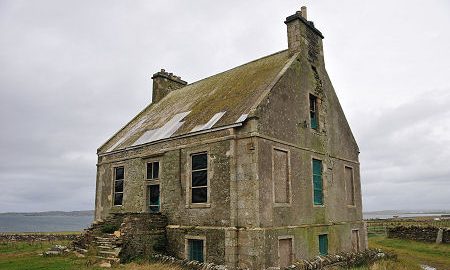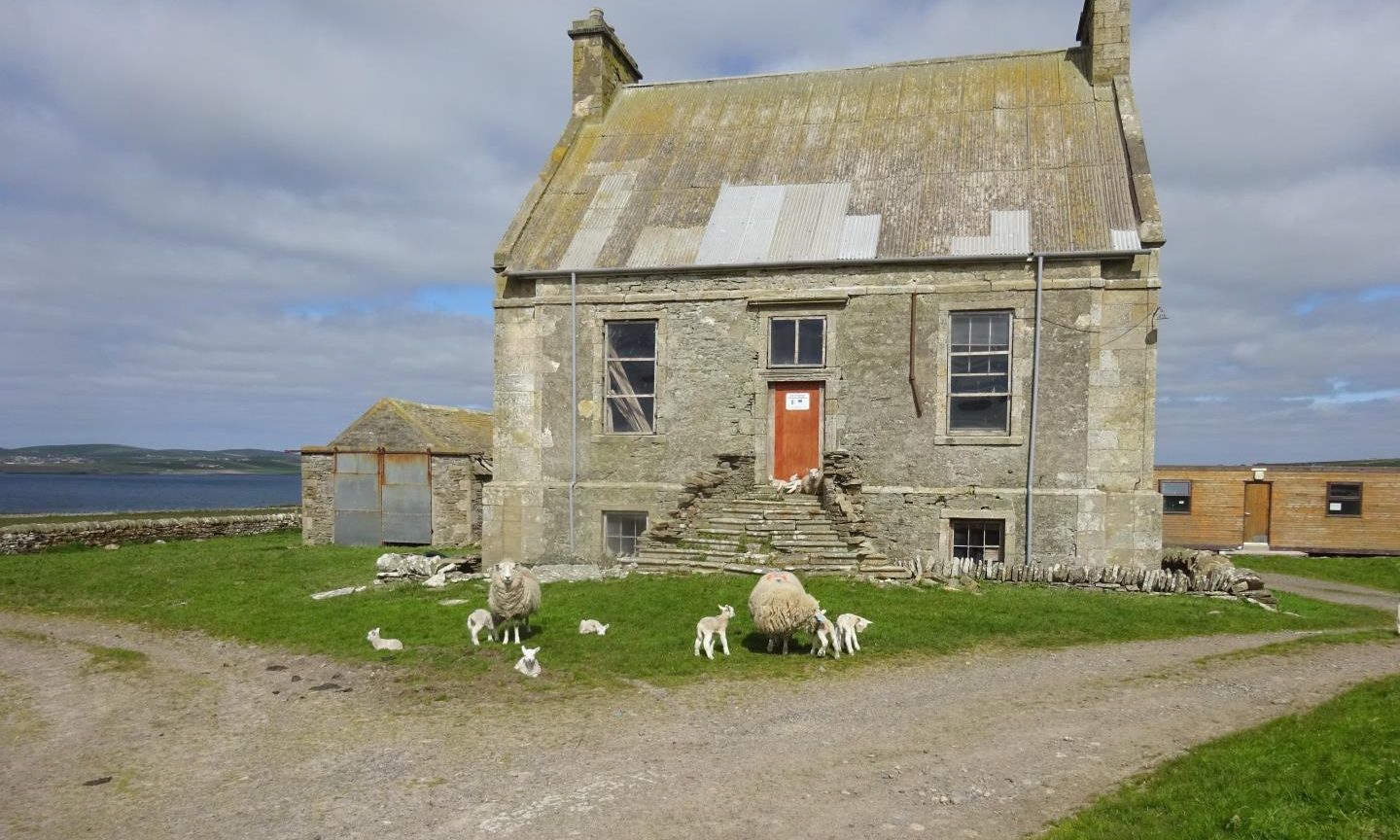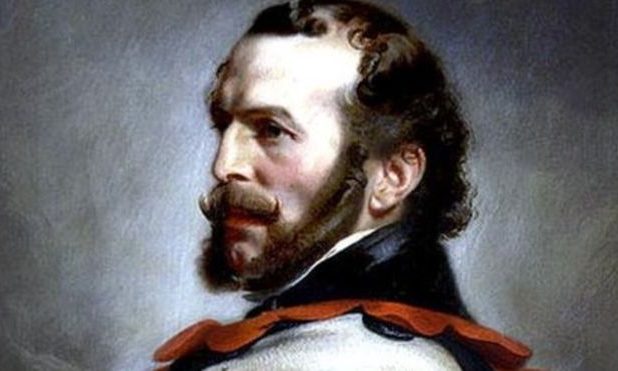Planning chiefs have approved the restoration of the crumbing Orkney manor where Arctic explorer John Rae was born – after hearing the building was in “imminent danger”.
The project to bring the once-grand property back to its former glory is now poised to proceed.
It comes after campaigners revealed the shocking state of the 18th century Hall of Clestrain, in Orphir.
The building has been abandoned for about 70 years, and is said to be “in imminent danger” with “urgent repairs” needed.
What will these repairs involve?
Most importantly, it will be made wind and watertight.
This would involve the three-storey, Georgian-style building getting a new roof and the exterior walls being repaired.
Permission has also been given for new rainwater goods and fitting temporary window grilles. These will help dry out the building’s interior.
The plans for the roof will also see the building return to its original form as Orkney slate will replace the corrugated sheeting put in place following a storm in 1952 destroyed the original.
The first step in a long-held ambition for the John Rae Society
These plans are stage one in a set of long-held ambitions for the John Rae Society – an organisation dedicated to the memory of the explorer and scientist.
It has over 400 members and counts Michael Palin as one of its patrons.
The overarching goal of the society’s “Fit for the Future” project is to secure the hall for generations to come.
On their website, the society says this would deliver tourism, economic, and learning opportunities for Orkney.
What else are they planning?
And there could be more to come.
Further aims include rebuilding the east pavilion block it would have originally had.
In line with the legacy of John Rae, the next stages of the ambitious project would include creating partnerships with Canada’s First Nations Métis, and Inuit organisations.
Earlier this summer the society confirmed it would receive a grant of £248,600 from The National Lottery Heritage Fund towards its work.
Who was John Rae?
Dr John Rae is famous for discovering the final portion of the Northwest Passage in Canada in 1854.
With the help of the Inuit, he discovered the fate of Sir John Franklin’s polar expedition, of which there were no survivors.
Included in Rae’s report to the Admiralty – which went on to be published in The Times – he said there was evidence that several of the crew on Franklin’s two ships resorted to cannibalism.
This was met with a storm of controversy.
Efforts were made, led by Lady Franklin and Charles Dickens, to vilify the Inuit and destroy Dr Rae’s reputation.
Credit was initially given to Franklin for discovering the Northwest Passage.
With his reports proving too much for Victorian sensibilities, Rae was essentially airbrushed out of history during his lifetime.
However, his reports about the Franklin expedition’s grizzly fate were proved correct.
Over the decades, efforts have been made to walk back this historical injustice.
Sir Michael Palin on why he champions Orkney explorer Dr John Rae



Conversation